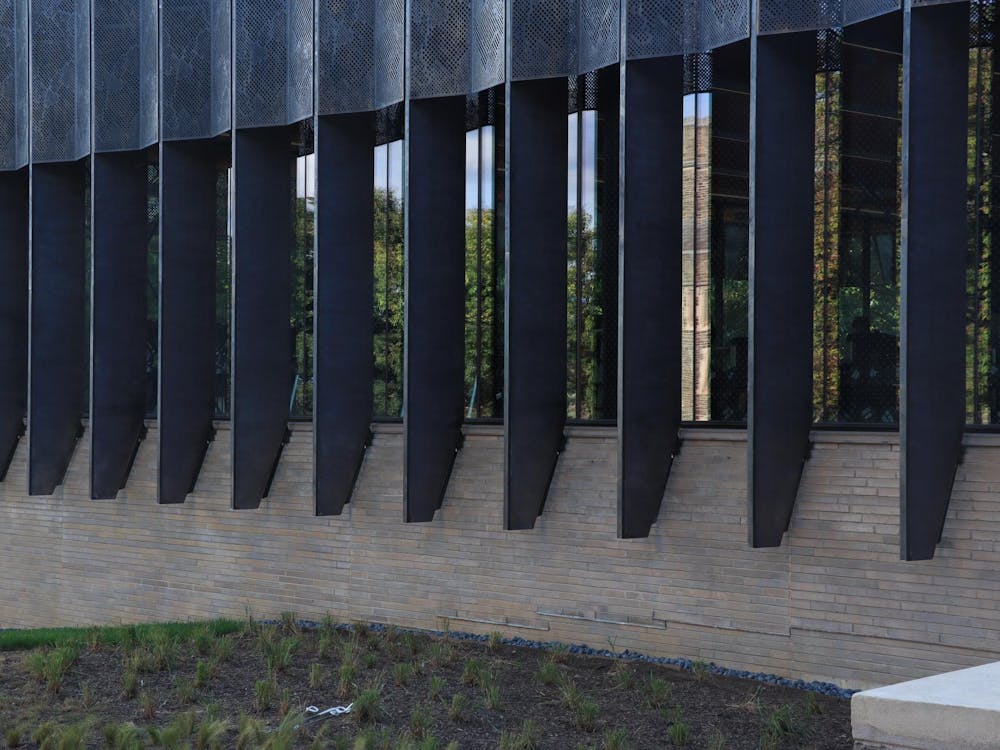Founded in 2011, the South Asian a cappella group Tarana just returned from a two-year hiatus. This spring, the audition-free Tarana is gearing up for a new season and held an open house on Feb.11.Street sat down with Nusrat Ahmed ’17, the president of Tarana, to talk about the group's recent revival.
Daily Princetonian: So Tarana recently came back after a hiatus. Could you give us some background on that?
Nusrat Ahmed: Actually, it started in 2011, but it took a break because everyone who founded it was a senior and had different priorities. I knew the founding members, even though I was never part of the club. Some of the songs that they sang before include ”Yeh Dooriyan” and “Saathiya.” I liked the idea of the club and I decided to revive it.
DP: Tell us a little bit more about the group — the story behind Tarana, your goals and aspirations.
NA: So there are lots of ethnic a cappella groups that are doing very well in the college scene. For example, the a cappella scene in African R&B is amazing. But, at the same time, a lot of it is extremely exclusive.
There is a rich South Asian culture here at Princeton, because the population of South Asianers is so large. I just wanted to make a group where the community could join together. We welcome anybody who loves ... a cappella, music, South Asian culture, or even just hanging out. Even if you have zero percent experience, you can still join our completely non-exclusive group.
DP: So someone who does not want to sing can still join the club?
NA: Definitely! I like to make it clear that we are a family before we are an a cappella group. We want to make this as inclusive as humanly possible. If you want to hang out with us, that’s awesome!

DP: What does the name Tarana mean?
NA: Tarana is the Persian word for “song,” but we won’t be singing in only one language . We will primarily sing South Asian music, but some of it might be Western-fused. The songs we choose will be very diverse. Everything will be from many different languages — South Bengali, the language of Bangladesh; Urdu, the language of Pakistan; Hindi; Tamil; Telugu; and also some mixtures of Western American music.
DP: Who chooses the songs? Do you arrange your own music?
NA: We do have a music director and an assistant music director, who are in charge of coordinating all the parts and organizing the songs. Picking songs is a group effort. We all make the music together, try to bring the music to its core, and then separate it into individual parts.

DP: What does your practice schedule look like as of now?
NA: We are going to have three practices every week, one that will be one hour long and two that will be one and a half hours long. A lot of it is not confirmed yet. We do have a board which currently consists of me as the president, Anjali Taneja as the vice president, Samhita Karnati as the assistant music director, Rabia Khan as the secretary, Tanvee Deokule as the social events chair, Divya Rohira as the social media chair and Soumya Sudhakar as the treasurer.
DP: What do you envision for the upcoming semester?
NA: Right now we really want to focus on making Tarana a very safe space, because we are essentially the guinea pigs right now. It will be a lot of experimenting, and most of us are beginners.
Tarana does eventually want to perform on campus, in arch sings, in events, as well as outside of campus. Mainly for now, we are celebrating South Asian culture on campus, teaching everyone about it, also learning ourselves along the way. That means that you should be expecting lots of mixers, lots of social events and lots of showcases from us in the near future!
We want to eventually follow in Penn Masala’s footsteps. They are a very famous Hindi a cappella group from the University of Pennsylvania.
DP: How about in the long run?
NA: Hopefully, we’ll be able to have larger performances and also compete in different competitions. We also want to make an album and a YouTube channel!







